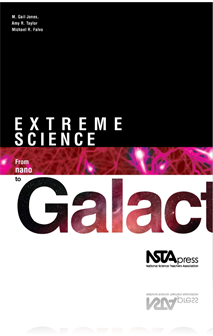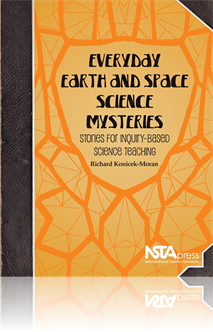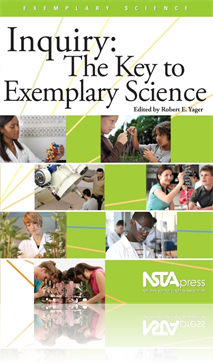All Book Chapters
Book Chapter
Beetlemice Multitudes!!! Power Law and Exponential Scaling
Scaling describes how a quantity changes over time or with the size of a system. It can also be defined as how a quantity changes in relation to any other parameter. When you stop and think about it, all of the equations in math and science are scali...
Book Chapter
Oops, I Did It Again: Errors in Measurement
Understanding the precision and accuracy of measurements is a crucial skill that scientists must develop to do their work. All measurements involve some degree of error. Knowing how to assess and work with error is an essential part of making sense o...
Book Chapter
Is a virus bigger than a bacterium? Is the distance from the Earth to the Moon greater than the diameter of the Earth? In this investigation, students explore the relative sizes of things through a card-sorting activity. The goal is to raise students...
Book Chapter
It’s Not All Relative: Relative Versus Absolute
Learning about the sizes of things and scale engages students in thinking about conceptual benchmarks for sizes. In this investigation, students learn to order objects on a relative scale, as well as to accurately label actual or absolute sizes. In a...
Book Chapter
Time Flies When You’re Learning About Scale!
Not many students would forget to say “Dinosaurs!” if you mention the Jurassic period, yet the word scale only conjures up ideas of measuring objects. Most students automatically think of measuring mass, volume, or distance, and not necessarily t...
Book Chapter
Billions of Us: Scale and Population
Population is increasingly important as both a scientific and a political subject. The world is getting more crowded. Providing students with the tools to understand population numbers is not only important for their basic understanding of their worl...
Book Chapter
When building a dollhouse or a model of a car or a cell, close attention to the details is crucial to making it look accurate and realistic. A consistent scaling factor for all details in the model is critical. In this activity, students explore scal...
Book Chapter
This story obviously is aimed at the technology standards. Two simple timing devices are mentioned with the suggestion that more are possible. These can be improved to meet the challenge or other devices could be invented. Students are being challeng...
Book Chapter
The two concepts at work here are conservation of matter and the question about many surfaces vs. fewer surfaces absorbing heat. You may wonder what this story is doing in the Earth system science area, but it has to do not only with thermodynamics a...
Book Chapter
Inquiry at the Ocean Research College Academy (ORCA)
The Ocean Research College Academy (ORCA) is a full-time, dual credit, early college program designed exclusively for Washington State Running Start (juniors and seniors in high school) students. Students in ORCA are together as a cohort for two year...
Book Chapter
Science Projects: Successful Inquires in Eighth-Grade Science
This chapter focuses on the mission of the science department of Hilo Intermediate School—to ensure that the Hawaii State Standards and Benchmarks are addressed through the seventh-grade life science and eighth-grade Earth and space science classes...
Book Chapter
Inquiry Is Elementary: Differing Approaches to Inquiry Within Two Elementary Schools
Scientific inquiry is practiced and celebrated at two elementary schools within a school district of 40,000 students, located within a first ring suburb of Minneapolis. While their approach to inquiry differs somewhat, the commitment to inquiry learn...
Book Chapter
Science as Inquiry at Sir Winston Churchill Collegiate and Vocational Institute
As a department, the science teachers at Sir Winston Churchill Collegiate and Vocational Institute share a common commitment to the ideals of teaching of science as inquiry. As individuals, they also have the flexibility to teach in ways that reflect...
Book Chapter
Erasing Lecture-Laboratory Boundaries: An Inquiry-Based Course Design
The University of Maine at Presque Isle (UMPI) is one of seven autonomous campuses within the University of Maine System. UMPI combines liberal arts and selected professional programs for 1,400 undergraduates and also serves as a cultural and educati...
Book Chapter
Enhancing the Inquiry Experience: Authentic Research in the Classroom
Inquiry in science classrooms involves the ability to pose a question, explore phenomena relating to the question, acquire new understandings, communicate new ideas, and relate or compare ideas with what other scientists have found (NRC 2000). The En...




